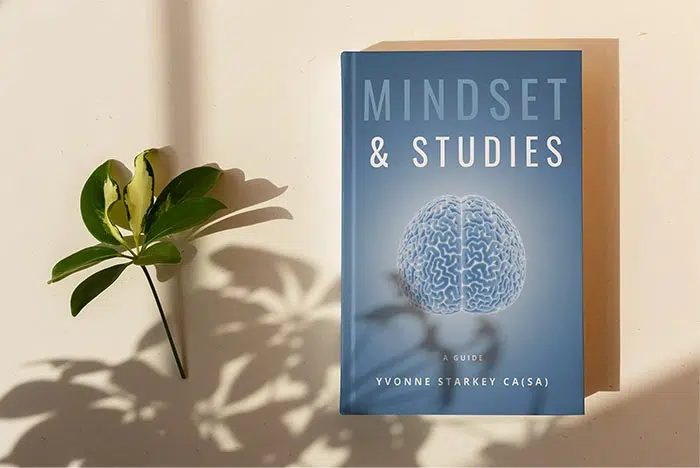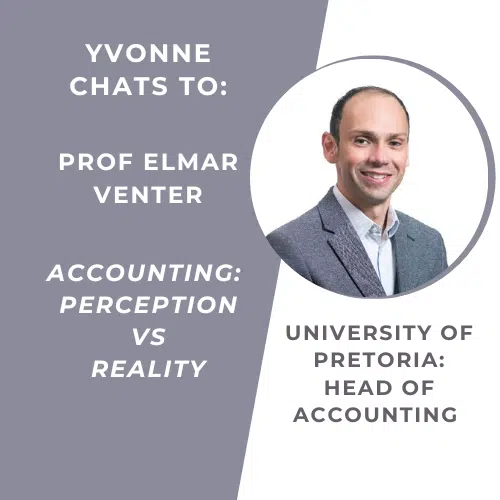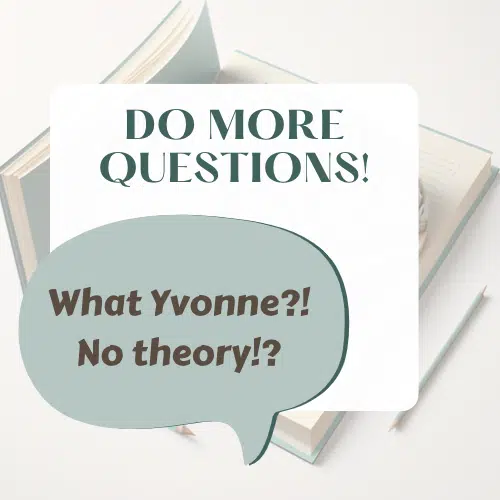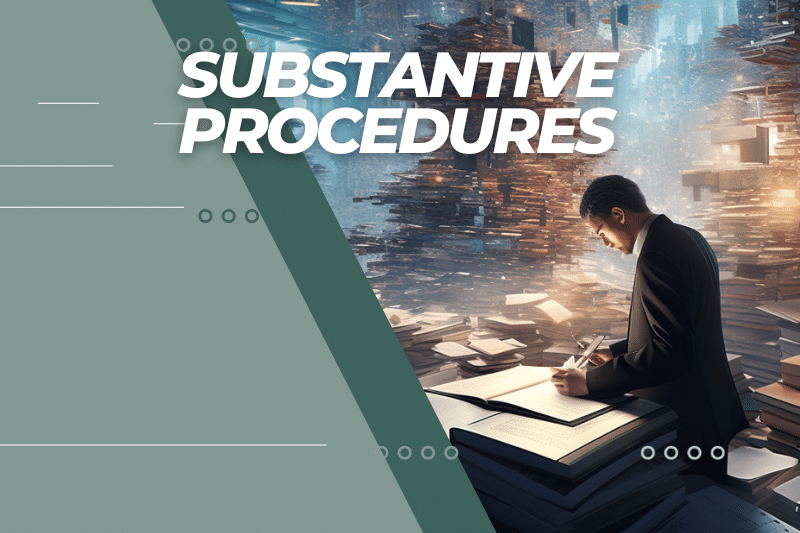These two modules seem to cause endless grief for a lot of students who need them to finish their degree; those who haven’t studied Accounting in High School or for a while since then and even those who are planning on taking Accounting as a major for their degree.
Why should I make an effort?
Beyond the exam itself, there is a LOT of value in these modules. Some of the topics may make you roll your eyes in boredom and irritation, but mostly, they contain very valuable knowledge for your future career, REGARDLESS of your career direction or choices. If you’re planning a career in finance or marketing or your own corner café, knowledge of how accounting records are put together are crucial for your understanding of the position of the business, making decisions about the information, and even making sure your bookkeeper / accountant isn’t pulling the wool over your eyes! There are tons of small businesses that have failed due to the owner ‘trusting’ someone else to tell them what’s going on with their money because it’s too much effort to figure it out themselves… you don’t want to add to that statistic!
This is also why I focus so much on understanding the topics when I lecture it, rather than just focus on how to pass the paper.
Don’t study in a way that will force you to go backwards before you can go forwards
I can’t tell you how often we have to enroll FAC1601 students for our FAC1502 courses because they didn’t learn the basics they needed in 1502 and it now holds them back from passing FAC1601, or FAC2601, or FAC2602, etc. This is extremely short-sighted thinking. You don’t have time next semester to come back and fill in those gaps you left because you just did the minimum to pass the exam!
Thankfully, with our online courses, you have the option of getting the resources for both at your fingertips at the same time… but who has the time for that?!
(In case you’re interested… take a look at our FAC1502 course here and the FAC1601 course here)
Should you listen to other student’s advice and opinions?
As a past part-time student, and a lecturer of nine years, I can relate to the need to ‘gather’ information from as many sources as possible. Be careful though! Not everyone has your interests at heart.
If you’re asking someone who stands to make money from you (eg: classes, tutors etc), they may be more interested in getting money from you than what will really work for you.
Other students opinions are tricky. They can be very valuable to get an idea of what you’re in for, what others battled with, how they overcame their problems, what worked for them etc… but they’re NOT YOU! Taking their advice can be like asking a stranger what job would suit you! They don’t know you, your strengths, weaknesses, background etc. What works for someone else DOESN’T necessarily work for you.
I see this all the time. Often, students will take the advice from students who claim they didn’t go to class, didn’t buy the textbook, crammed the week before, only did past papers, etc (ie: students tend to take the advice that sounds the easiest.) We’ve all known those irritating students with photographic memories, right? Those lucky souls who can look at something once and know it forever? Should you take advice from them if you’re not one of them? Be careful!
I’m not saying that advice and opinions will always be wrong and inappropriate and that everyone’s out to lie to you… all I’m saying, is… make informed decisions, and consider carefully the source of the information, and what’s best for you.
I asked few of our past FAC1502 students some questions about how they found the exam, what their challenges were and what advice they’d give others. Read their responses here
Should you buy the textbook?
With these modules, the majority of the actual information and knowledge is in the textbook. You’ll notice the textbooks are written by the UNISA lecturers who are responsible for the modules. Most of the study guide introduces a topic and then states that you’ll find the knowledge in the textbook. Your understanding will have severe gaps without that knowledge. Your background, experience, previous knowledge of accounting will also play a part in that decision.
Can you study from past papers?
This definitely used to be the case in the past. Be careful of this though. In the last few years, the exams have shifted drastically, to prevent students from parrot-fashion studying. Take a look at this article for more thoughts on this: http://www.tabaldi.org/blog/66-as-above.html
So, how can you pass first time?
I can’t emphasise understanding enough. As I mentioned above, the knowledge here will serve you well for a lifetime (unless you plan on turning your back on money entirely and moving to Alaska to build a loghouse and hunt moose to feed your family!)
- Start early
There’s a lot of work to get through, don’t save it all up to do as close to the exam as possible. Do little bits all the time. Your brain gets used to it, you get more comfortable with the knowledge, you have more time to figure out what you battle with.
- Know what the questions will look like
Make sure you know what will be expected of you. Memorising the textbook means nothing if you can’t put the knowledge into your answer in the way they want it. If you can’t apply it, it’s useless information.
- Know your formats
In these modules, your answers are expected to be in certain formats, so know them, and make sure you can write them out… FAST. That way, you can create the format of your answer in the exam, and start ‘plugging’ in the answers as you get them, earning valuable marks along the way. Hesitating over these in exams wastes a lot of time. Make sure you know what type of paper you’ll be given, how you’ll structure your GL accounts, your AFS, your Journals etc. (ie: Will you turn your book sideways? Work over two pages? Put all the calculations on the next page? Under your formats? How much space should you leave in your journals?) These can waste time, and make your paper very difficult to mark as well!
- Know your calculations
The exam is not the time for you to mentally debate how to calculate a VAT exclusive amount, membership fees, gross profit, capital etc. As a perfectionist, you will want to get the answer right, so you’ll waste time by trying a bunch of stuff instead of confidently getting it right first time.
- Exam technique
I wrote an article to help you with this a little: https://accountingstudyadvice.com/?p=350
- Watch that perfectionist streak
Your exam is about gathering marks along the way. Your perfectionist streak may want that answer to be perfect before you commit it to paper. Be careful… if it’s all or nothing with you… you may land up with nothing.
Last words
Practice, practice, practice! Don’t leave it to the last minute. Don’t procrastinate. Don’t let fear get the better of you! You can do it!















7 Comments
helpful there l think l ll be needing such since this isa my first time to do accounting itself
Very encouraging, Yvonne.
But remains a hugh challenge for me studied Mechanical Engineering.
Respectfully yours,
Agreed… students who haven’t done accounting often struggle getting to grips with it.
This is also why we’ve developed our online courses for students with no accounting background. It helps our non-accounting students so much.
Have you checked our stuff out?
i need help with FAC1502
Hi there…
The best, fastest help I can suggest for you is our Tabaldi Exam Course. I’ve gone through two past papers, with videos showing you how to read, plan, and answer each question. I’ve gone through exam technique and how the examiners will mark the answers.
The best thing you can do now, is focus on how to ‘gather’ marks for whatever you know. Don’t keep going back to theory, because if you don’t know how to put that theory into an answer… you’ll fail anyway 🙂
It’s R390, you can go through it this weekend if you want. It’s fully online, buy online, pay now and get immediate access. 🙂 Problem solved!
Here’s the link
Hi Yv
I have 21 days to learn FAC1502 from scratch.
How about 1 on 1 tutoring ?
Regards,
E